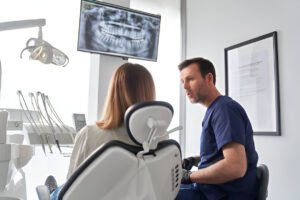Finding a dentist who accepts NHS patients can be as tricky as a slippery eel, but it’s vital for keeping your smile bright and healthy. If you’re on the hunt for a dentist who offers NHS services, you’ve come to the right place. Let’s break down how to find these dentists, what you can expect, and how to get registered.
Understanding NHS Dental Services
First things first, let’s chat about what NHS dental services involve. NHS dentistry aims to provide quality dental care to the broader public at affordable prices. It covers everything from regular check-ups and cleanings to more complex work like root canals and crowns, all at set prices. So, if you need a dentist, it’s smart to consider the NHS options.
How to Find NHS Accepting Dentists
So, how do you go about finding a dentist who takes on NHS patients? Start by popping onto the NHS website. There, you can search for dental practices by postcode, which makes it easy as pie to find options near you. Another good tip is to ring up the practices directly. This way, you can ask if they’re taking new NHS patients and how long the waiting list might be.
How to Find an NHS Dentist in Aberdeen and Book Your Appointment
Registering with an NHS Dentist
Once you’ve found a practice that suits you, the next step is registering. It’s a straightforward process – just give them a ring or visit in person. They’ll ask for some basic details and then you’re all set. Remember, registering doesn’t usually mean you can get seen straight away. There might be a bit of a wait, but they’ll let you know how it all works.
What to Expect from NHS Dental Treatments
When you’re registered with an NHS dentist Aberdeen, you’ll pay for treatments according to three standard price bands. Band 1 covers an examination, diagnosis, and advice. If you need additional treatment, you might move to Band 2 or Band 3, which include things like fillings, root canals, and more complex procedures.
It’s worth noting that NHS treatments focus on clinical need, so while it might not cover every cosmetic option, it takes good care of your dental health.
Tips for Finding a Spot
Since finding an NHS dentist can sometimes feel like a game of musical chairs, here are a few tips to help you snag a spot:
- Be Flexible: Consider practices a bit further from your home if nearby spots are full.
- Check Regularly: Practices may open up spots at any time, so keep checking.
- Ask for Alerts: Some places can alert you when they start accepting new NHS patients.
Why Choose NHS Dentistry?
Choosing NHS dentistry can be a brilliant way to manage your dental health without breaking the bank. The treatments are affordable, and the care is top-notch, governed by strict standards to ensure everyone gets the treatment they need.
In Conclusion
Finding an NHS dentist might require a bit of legwork, but it’s well worth it for the peace of mind and the savings. Remember to check the NHS website, be proactive, and register with a practice that fits your needs. Your smile will thank you!
Ready to Brighten Your Smile?
If you’re eager to get started and find your new NHS dentist, consider Bridge St Aesthetic and Dental Implant Clinic. They offer a wide range of NHS dental services and are currently welcoming new NHS patients. Whether it’s your routine check-up or more comprehensive treatments, they’re ready to help you with your dental needs in a friendly and professional environment.
Don’t wait to take care of your dental health. Give “Bridge St Aesthetic and Dental Implant Clinic” a call or visit their website to register as an NHS patient. It’s your first step towards a healthy, glowing smile!
Frequently Asked Questions
How often should I see my NHS dentist?
It’s recommended to visit your NHS dentist at least once a year for a routine check-up to maintain good oral health.
What does Band 1 NHS dental treatment include?
Band 1 covers an examination, diagnosis, including X-rays, a scale and polish if needed, and preventative care like fluoride varnish.
Are cosmetic procedures covered under NHS dental care?
No, cosmetic dental treatments, such as teeth whitening and veneers, are not covered by the NHS and must be paid for privately.
What should I do in a dental emergency?
In a dental emergency, contact your NHS dentist. If out-of-hours, use the NHS 111 service to find an emergency dental service near you.






